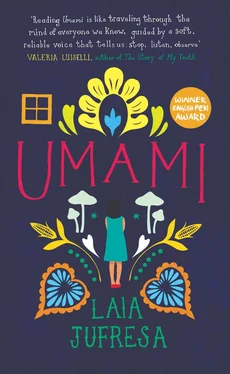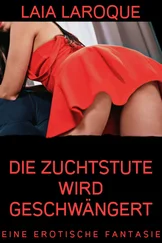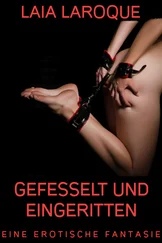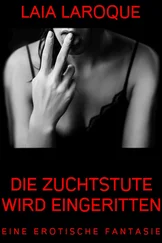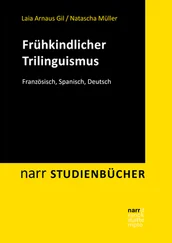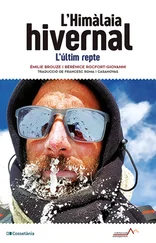‘Savory?’ she pronounced in perfect English.
‘That’s right, or sometimes they’ll just say meaty.’
‘I’m afraid I’ve never been able to get my head around it, Alf.’
‘The easiest way to understand it is this: think about pasta. Imagine a portion of spaghetti. It’s nothing; doesn’t taste of anything. Carbohydrates, plain and simple. But if you add umami, if you throw in a bit of Parmesan or tomato or eggplant, then bingo! You’ve got yourself a meal.’
She nodded for a long time, and that was it. When she went (we never leave the Mustard Mug together), I was left in a state of confusion. I’d had an almost identical conversation once before; with a woman I barely knew and whom I ended up marrying.
*
For Noelia, the fact that her theories about offspringhood proved to be simplistic or naive only served to strengthen her main argument that you never fully mature if you don’t move on to the second human condition; to the other side; to not being only a child, but also a progenitor (prolongation of the species, genetic dissemination, all those things). In other words, Noelia wanted her mysticology of offspringhood to be self-evident, above all in the areas relating to immaturity. For example, in a modus noellendo noellens :
If you’re only a daughter, something in you hasn’t fully matured.
As such, your arguments will necessarily be puerile.
And the more puerile your arguments, the more proof there is for the general theory that offspringhood is an irredeemably immature state.
And it wasn’t like my profession made me particularly pedantic in terms of scientific proofs, which meant that, as far as I recall, I never had any issue going along with Noelia’s theories, which might, say, allow us to have sorbet and tequila for breakfast some Sundays, or buy a plane ticket every now and again and set off to random destinations, just because.
*
My wife was a perfect blend of civilized and primitive. She had a pure, savage mind: Levi-Strauss would have drooled all over her. Hand in hand with her medical finesse, Noelia Vargas Vargas also had a thing for pagan rituals. Despite knowing full well that nicotine upsets the gut, for years she sustained the idea that she couldn’t go to the bathroom without the helping nudge of a Raleigh. On top of that, she consulted her horoscope every day as soon as she woke up. Without a hint of irony. She checked it like most people check the weather forecast. If her horoscope revealed something negative, she would sulk; if it was positive, she’d be happy as Larry. This habit of hers irritated me during the first years of our marriage. I couldn’t understand how an intelligent woman could decide the mood of her day based on something that — as she herself would admit — didn’t have the least logical founding. In practice, however, her rational, sharp side, — masterfully employed in most other areas of her life — was disconnected from her moods. She used her horoscope like a guide, despite knowing perfectly well that they were no more than words written by a harried astrologer, or, as she herself suspected, by the harried astrologer’s minions. It’s not that Noelia believed in her stars: she believed in her horoscope. She needed it to start the day. Just like some people can’t leave the house without making the sign of the cross, or without a coffee inside them. Among the many components of my wife’s emotional machinery, the damn horoscope was the switch: one paragraph that determined in which mood she’d shift from sleep to wakefulness. Luckily, the effect would wear off over the course of the morning. It was a terrible ritual, but short-lived.
Right up until she died, Noelia received a weekly magazine called Astros , written by a certain Madame Elisabeta. For the last five years she had it sent to her email, but before that, for what felt like a million years, she had it delivered. And before that, when I first met her, Noelia read her horoscope in the newspaper. Every morning, she would pop out of her bachelorette apartment in her slippers to buy it. So rigorous was she in her routine that the vendor billed her weekly. I was horrified by her horoscope habit, but loved having the newspaper first thing in the morning: it was one of those wonders a relationship only knows in its early phase, like doing it in the kitchen.
Astros magazine gave you a seven-day horoscope personalized to your sign, ascendance, and even your name, which someone typed directly onto your typed copy (you could tell from how the letters of Noelia formed a zigzag, with those dainty typographical dances produced by typewriters). As you can imagine, it wasn’t a cheap publication.
One day, Noelia welcomed into her consultation room none other than Madame Elisabeta. She turned out to be a pale, obese fifty-something with her heart in a terrible state. She was friendly and foulmouthed. The a at the end of her name, Noelia soon learned, had been her mother’s idea, and wasn’t just some half-baked pseudonym. At first, Noelia didn’t say anything about the magazine, because in her role as a cardiologist she tended to keep her superstitions to herself. She fitted Madame’s pacemaker and that was that. Except, it being December, the patient — saved in the nick of time and eternally grateful — invited us to her magazine’s Christmas party. I was happy to go along, both out of anthropological curiosity and also because I was convinced that, on witnessing the commercial inner workings of Elisabeta’s magazine, Noelia would finally recognize her ongoing error. But the event turned out to be nothing like what either of us expected. For starters, it was in Elisabeta’s house: a big, shabby apartment where she lived with a parrot and a much younger woman who served as both lover and nurse, as well as helping out with the magazine, the cleaning, and the astral cards. Everyone referred to her as Pisces. I remember Pisces as being permanently positioned on Elisabeta’s lap. There were others at the party: some astrologers, musicians, and a couple of intellectuals who could actually see beyond the shadow of their egos, which is unusual. Dinner consisted of rum (with a dash of punch), and a mountain of takeaway pizzas. As soon as we arrived, Pisces made us mark our preferred toppings on a list, and at some point she must have called to order them because not long after they turned up at the door. Fat old Elisabeta was poor as a church mouse and esoteric in the extreme, but she understood, long before Google did, the value of a seemingly personalized service.
Before I knew it, that humble soirée had washed away the bad taste in my mouth I’d had every morning on waking up to Noe and her horoscope. The fact that Madame existed, and that her stars were specked with parakeet feathers, cheap pepperoni, and a lustful and tender lesbian romance put me at peace with the whole issue of the horoscopes. I can’t really explain why.
Everyone knows that a horoscope is like a shell: it needs to be wide and hollow enough to accommodate exactly what we need to hear. But I got tired of explaining this to Noelia, who knew it full well anyway. The change in my perception didn’t occur at this superficial level (I knew that the tried-and-tested recipe — add together a planet, an illness, and a sudden windfall, whip it up into a paragraph and you’ve got yourself a horoscope! — still applied), but at a deeper one: as formulaic as they might be, those texts didn’t appear out of nowhere. There was an author behind every one: and not some evil corporation, but a middle-aged lady who really did believe in the stars. The signs of the zodiac were Elisabeta’s dearly beloved characters. She brought them to life each week with her pen, just as worse writers have done with worse characters. The open nature of Astros — its capacity for multiple interpretations — wasn’t a failing. On the contrary, this was the characteristic — the only one, but still — it shared with all great literature: its universal ambition.
Читать дальше
